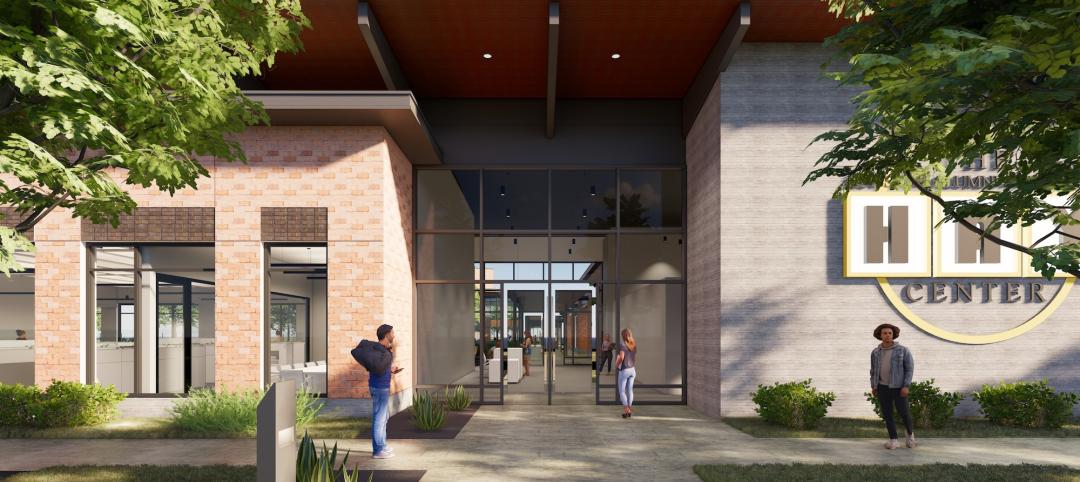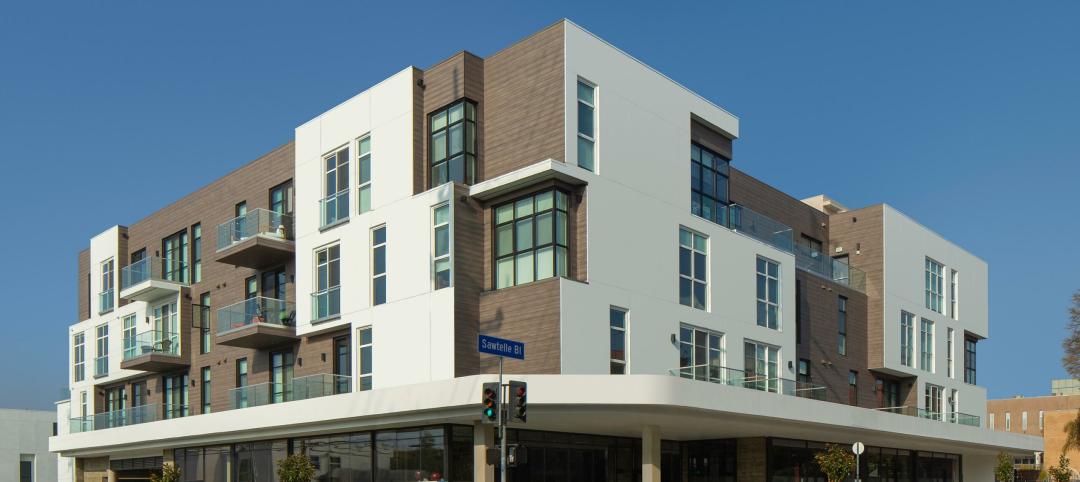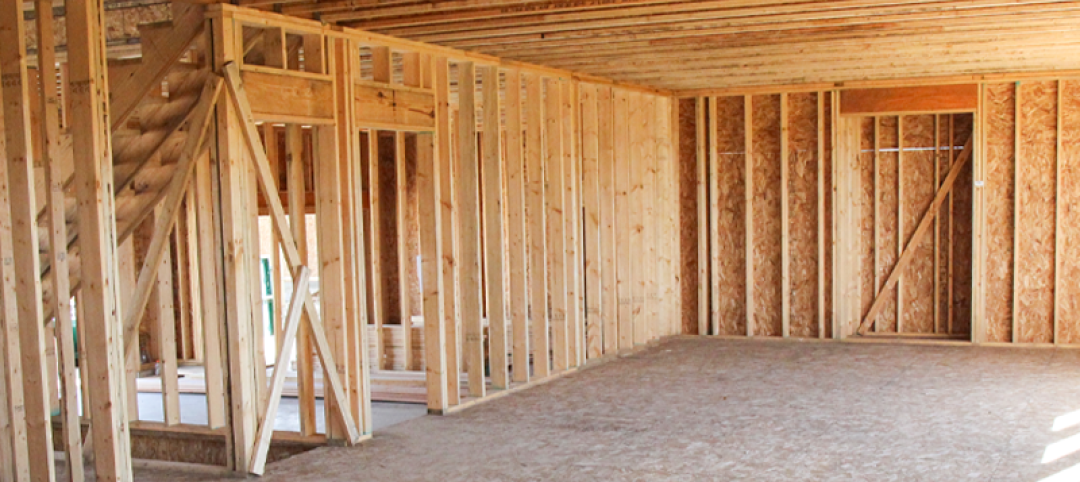There are more than 38 million Americans living in apartments. The multifamily sector continues to drive America’s housing construction, and contributes more than $1 trillion annually to the country’s economy through financing, development, and operations of apartment complexes.
But available data about this sector and its residents continue to be sparse, given the size of this market and its growth.
To fill “critical voids” in that data, the National Multifamily Housing Council has raised $2.25 million in cash commitments from some of the biggest companies in this sector for the launch of a nonprofit NMHC Research Foundation that would fund unique and original research on such topics as housing, demographics, tax policy, regulations, zoning, and land use.
“As the multifamily industry grows in sophistication, so must the quality and breadth of our analysis,” says Doug Bibby, NMHC’s President and CEO. “The NMHC Research Foundation ensures that we’re able to continue providing leading, actionable information for the apartment market and support our member businesses.”
The Foundation, a 501(c)(3) entity, is guided by a board of directors comprised of Bibby; Kenny Emson, NMHC’s Senior Vice President of Finance Administration; and Mark Obrinsky, Senior Vice President for Research and Chief Economist. A Board of Advisors will provide input into the Foundation’s program of research.
It is not immediately clear how the research conducted and published by the Foundation will overlap or add to research that NMHC already churns out in such forms as its quarterly report of apartment market conditions, or various newsletters and reports that have recently touched on such subjects as the single-family rental market and aging apartment stock.
The NMHC research is generally members-only content.
Jim Lapidis, NMHC’s Vice President of Strategic Communications, tells BD+C that the Foundation is being layered into NMHC’s operations. “We do not anticipate hiring anyone specifically for the Foundation. We will be relying on a group of industry experts to volunteer their time and energy to review and award research grants,” he says.
It appears the Foundation’s research will be deeper dives into different topics, such as:
•Assessing risk-adjusted returns on apartments compared to other real estate and non real estate assets returns on apartments compared to other real estate and non real estate assets;
•Analyzing costs, challenges, and effects of inclusionary zoning policies;
•Studying energy consumption in multifamily buildings, with an eye toward providing guidance for energy efficiencies;
•Reviewing the norms of parking ratios in new developments;
•Examining the age of apartment stock and the cost of rehabilitation; and
•Exploring consumer needs and business viability of longer-term leases geared toward older and/or retired households.
Companies that have made early funding commitments to the Foundation include founding partners RealPage (a $1 million pledge) and Weidner Apartment Homes ($500,000). Each will pay out over a three-year period, and RealPage is availing Foundation with access to its databases and analytic capabilities.
“RealPage is excited to partner with NMHC to enhance the industry’s intelligence,” says Steve Winn, its Chairman and CEO.
NMHC identifies a total of 32 “early” contributors, comprising a veritable who’s who of developers, owners, and property managers in the multifamily space. They include Marcus & Millichap, Trammell Crow, Mill Creek Residential, UDR, Bozzuto Group, Pinnacle, SARES REGIS Group, Waterton, and Essex Property Trust.
Related Stories
Affordable Housing | Jul 27, 2023
Houston to soon have 50 new residential units for youth leaving foster care
Houston will soon have 50 new residential units for youth leaving the foster care system and entering adulthood. The Houston Alumni and Youth (HAY) Center has broken ground on its 59,000-sf campus, with completion expected by July 2024. The HAY Center is a nonprofit program of Harris County Resources for Children and Adults and for foster youth ages 14-25 transitioning to adulthood in the Houston community.
Adaptive Reuse | Jul 27, 2023
Number of U.S. adaptive reuse projects jumps to 122,000 from 77,000
The number of adaptive reuse projects in the pipeline grew to a record 122,000 in 2023 from 77,000 registered last year, according to RentCafe’s annual Adaptive Reuse Report. Of the 122,000 apartments currently undergoing conversion, 45,000 are the result of office repurposing, representing 37% of the total, followed by hotels (23% of future projects).
Multifamily Housing | Jul 25, 2023
San Francisco seeks proposals for adaptive reuse of underutilized downtown office buildings
The City of San Francisco released a Request For Interest to identify office building conversions that city officials could help expedite with zoning changes, regulatory measures, and financial incentives.
Sponsored | Multifamily Housing | Jul 20, 2023
Fire-Rated Systems in Light-Frame Wood Construction
Find guidance on designing and building some of the most cost-effective, code-compliant fire-rated construction systems.
Multifamily Housing | Jul 13, 2023
Walkable neighborhoods encourage stronger sense of community
Adults who live in walkable neighborhoods are more likely to interact with their neighbors and have a stronger sense of community than people who live in car-dependent communities, according to a report by the Herbert Wertheim School of Public Health and Human Longevity Science at University of California San Diego.
Affordable Housing | Jul 12, 2023
Navigating homelessness with modular building solutions
San Francisco-based architect Chuck Bloszies, FAIA, SE, LEED AP, discusses his firm's designs for Navigation Centers, temporary housing for the homeless in northern California.
Sponsored | Fire and Life Safety | Jul 12, 2023
Fire safety considerations for cantilevered buildings [AIA course]
Bold cantilevered designs are prevalent today, as developers and architects strive to maximize space, views, and natural light in buildings. Cantilevered structures, however, present a host of challenges for building teams, according to José R. Rivera, PE, Associate Principal and Director of Plumbing and Fire Protection with Lilker.
Mass Timber | Jul 11, 2023
5 solutions to acoustic issues in mass timber buildings
For all its advantages, mass timber also has a less-heralded quality: its acoustic challenges. Exposed wood ceilings and floors have led to issues with excessive noise. Mass timber experts offer practical solutions to the top five acoustic issues in mass timber buildings.
Multifamily Housing | Jul 11, 2023
Converting downtown office into multifamily residential: Let’s stop and think about this
Is the office-to-residential conversion really what’s best for our downtowns from a cultural, urban, economic perspective? Or is this silver bullet really a poison pill?

















